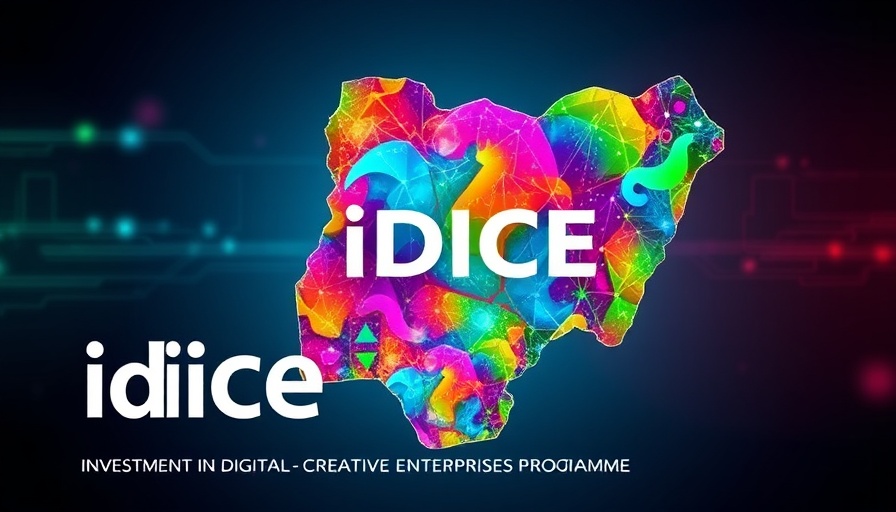
Transforming Nigeria's Workforce Through BPO
The Federal Government of Nigeria is taking decisive steps toward enhancing job opportunities for its youth by launching a significant initiative through the Investment in Digital and Creative Enterprises (iDICE) Programme. Backed by funding from established financial institutions such as the African Development Bank, Agence Française de Développement, and the Islamic Development Bank, this program focuses on training young Nigerians in Business Process Outsourcing (BPO) services, effectively linking education with employment.
Why BPO Training Matters
BPO has emerged as a vital sector in the global economy, offering numerous job opportunities ranging from customer service to IT support. In Nigeria, where youth unemployment is notably high, transforming skills into jobs through targeted training is critical. This initiative not only aims to equip young people with the necessary skills but also sets the stage for sustainable economic growth in the digital age.
Building a Robust Training Framework
The key objective of the iDICE Programme is to onboard competent trainers who can deliver high-quality BPO training tailored to the needs of the market. With a projected 36-week training timeline, the program emphasizes hands-on experience and direct job placements, ensuring that trainees can transition smoothly into their new roles. The eligibility criteria for trainers are stringent, requiring substantial experience in BPO services and proven track records of previous training initiatives.
Investment in People: A Catalyst for Growth
By empowering young Nigerians with BPO skills, this program not only addresses the immediate challenge of youth unemployment but also contributes to the broader digital transformation in Africa. As industries increasingly adopt automation and AI technologies, having a skilled workforce capable of operating in this new environment will be essential for maintaining competitiveness.
A Call to Action for Interested Consultancies
Consulting firms that specialize in BPO training are encouraged to express interest in collaborating on this transformative initiative. As the iDICE Programme progresses, it will help shape the future landscape of work in Nigeria by creating a pipeline of skilled professionals ready to contribute to various sectors, particularly fintech, AI, blockchain, and other emerging technologies.
For those in the tech entrepreneurship space, this is a significant opportunity to engage with the next generation of talent. The success of the iDICE Programme will ultimately depend on the collaborations established between experienced training providers and the Nigerian youth eager to embrace new career paths.
 Add Row
Add Row  Add
Add 


Write A Comment